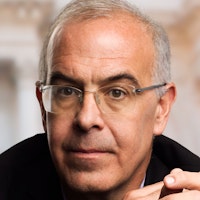
What we are talking about is the kind of cynical manipulation of the language of free speech for ulterior ends.
Show Notes
In public forums and institutions all across America, people are arguing about what free speech means in the age of the internet. What are the rules, and are they the same in every context? What are the consequences of taking action against hate speech, and what are the consequences of not taking action? Is “cancel culture” real, and what is it? Are we in need of a fundamental reset of the bedrock principles and law regarding freedom of speech? In this rousing and passionate panel from the 2022 Aspen Ideas Festival, New Yorker staff writer and professor Jelani Cobb and professor and former ACLU president Nadine Strossen debate the harms and merits of allowing and restricting speech in various environments. David Brooks, New York Times columnist and chair of Weave: The Social Fabric Project at the Aspen Institute, moderates the conversation.
Explore
Related episodes


How is social justice best pursued in a time when America is facing a reckoning on race? In today's cancel culture, many believe making the world a better place means banishing some opinions from the public sphere. John McWhorter, associate professor of English at Columbia University, says this censorious mindset threatens the value of free speech. McWhorter, a linguist an...


Should rules govern demeaning, disparaging, and degrading speech directed at certain groups?


America’s Founders didn’t envision activist groups mobilizing on social media and disinformation spreading across the internet. Thanks to the web, new threats to democracy — like the January 6th attack on the US Capitol — have emerged. Nate Persily, professor of law at Stanford, talks with Jeffrey Rosen, president of the National Constitution Center, about why passion may...









